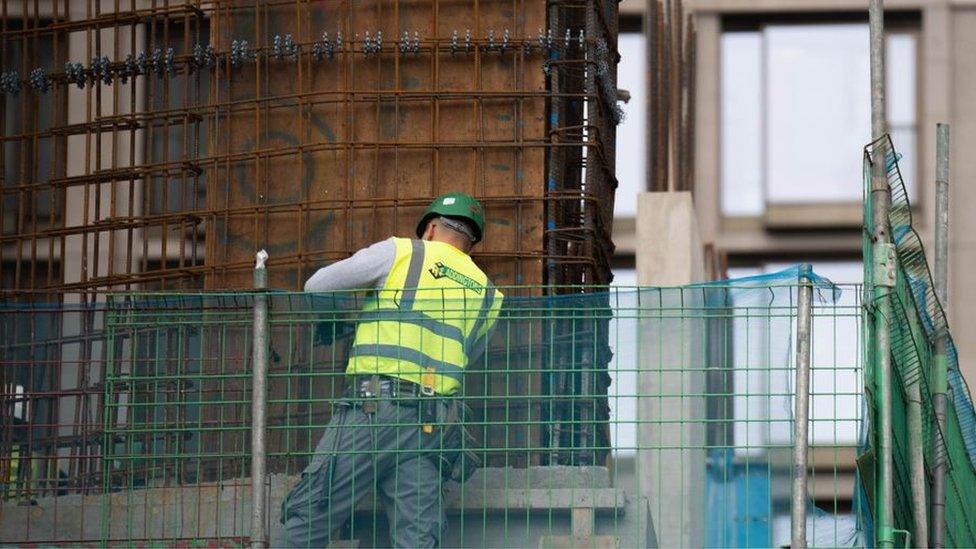What's being done to help London's housing crisis?
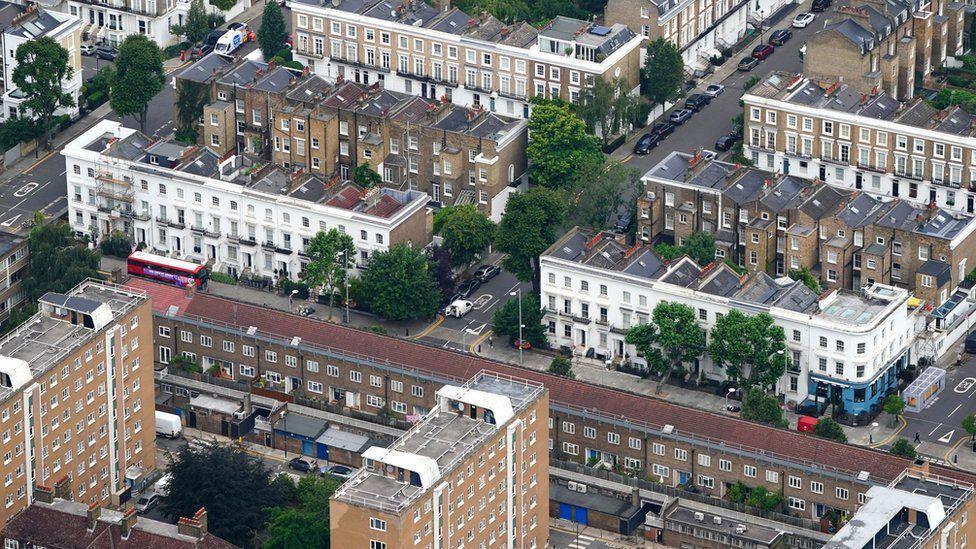
According to London Councils there are currently around 66,000 families facing the limbo and instability of a temporary home
- Published
The nine years Ngozi Ijanboh spent in temporary accommodation in north-west London are ones she would rather forget.
With her husband and four young children she lived in a flat in Kilburn which she said was freezing, mouldy and damp.
"I had pneumonia three times last winter and twice the winter before because the conditions were so bad," she says.
"It takes a toll on your mental health at the same time. It feels like there's no way out until you get secure housing.
"The council can uproot you and put you anywhere they want, we had to change the children's schools and the block we lived in was dire."
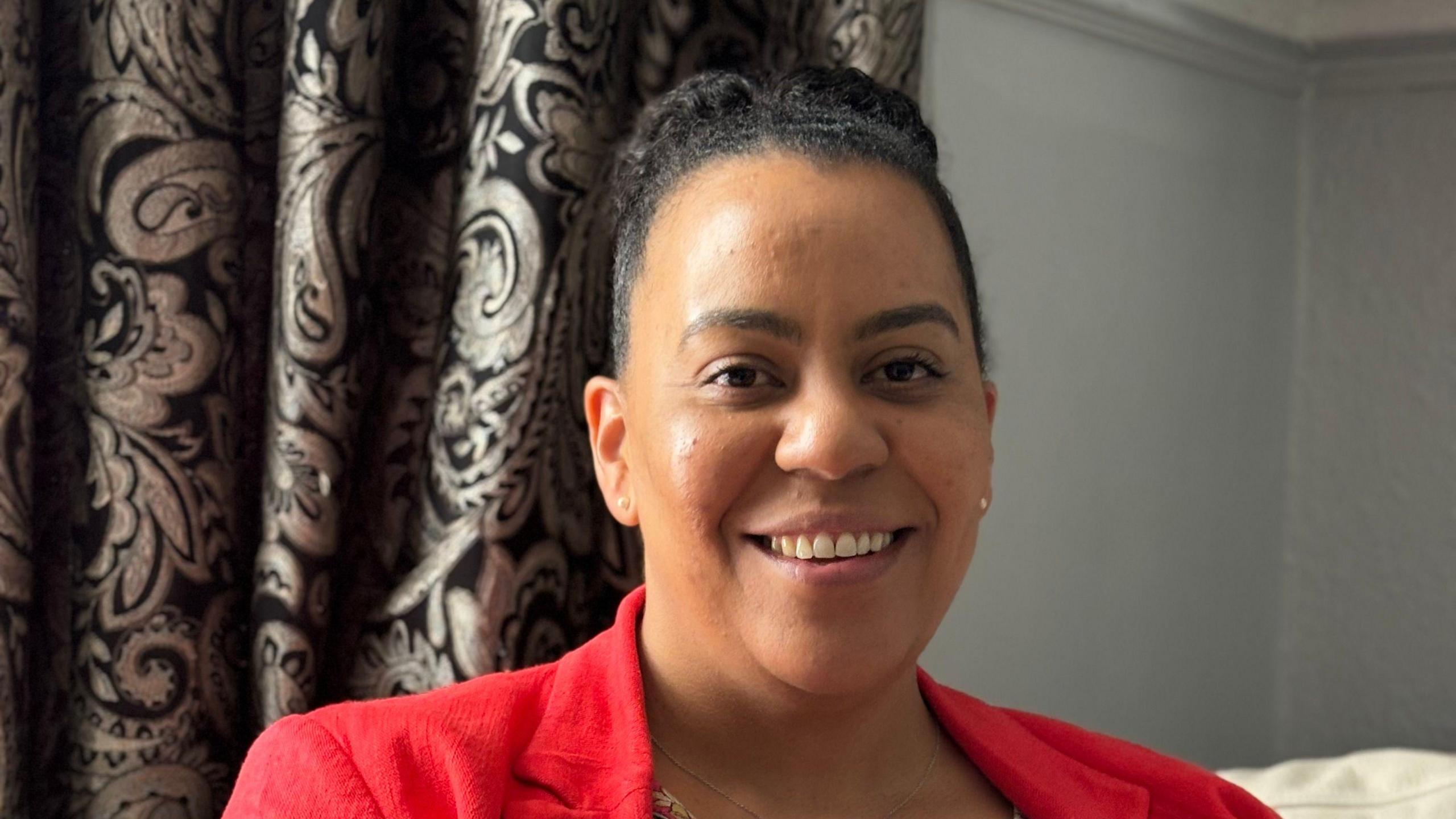
Ngozi Ijanboh lived in a flat that was damp, freezing and mouldy
Last year she moved into a permanent council house, but according to London Councils there are currently about 66,000 families facing the limbo and instability of a temporary home.
Although the amount of new housing is increasing faster than London’s population, housing charities have warned of severe pressures with private rents rising 10 percent last year.
Soaring energy and construction costs, along with tighter safety standards arising from the investigation into the Grenfell fire, are making house-building more difficult.
The situation was described recently by Fiona Fletcher Smith, chief executive of L&Q and chair of the G15 group of the biggest housing associations, as "the worst I have ever known it".
On the mayoral campaign trail, Labour's Sadiq Khan - mayor for the last eight years - said he had "smashed all the targets the government set us".
But the 40,000 homes a year built since 2016 failed the target he set himself, laid out in the London Plan, to build 52,000 homes a year, half of them affordable.
Using £4.8bn from Whitehall, the main target he reached was "starting" work on 116,000 affordable homes by 2023.
Over the same period, 65,000 affordable homes have been "completed" under the Labour mayor, compared to more than 90,000 under his predecessor Boris Johnson.
The Conservative mayoral candidate Susan Hall has been pointing out that you cannot live in a hole in the ground or an unfinished home.
'Incumbrance'
Figures from the Greater London Authority show an average of 8,000 affordable homes have been built each year compared to the 26,000 needed.
Earlier this year a government review suggested the current mayor's planning and housing strategies had been stifling home-building. Mr Khan said it was a politicised attack on his record.
Theoretically, City Hall has a target that 50% of all new homes should be affordable, but during his mayoralty Mr Khan incentivised developers to fast-track building by agreeing to 35%.
However, some housebuilders are calling for more flexibility around the 35% target, given the demands made by local authorities and government for other infrastructure like health, schools and transport.
James Stevens, from the Home Builders Federation said: "It started off as an incentive but has become a bit of an incumbrance now because of all the other policies they have to deliver as well as 35% affordable housing.
"I think there's an issue around the complexity of planning policy in London, between the government and London boroughs. It's complex and impossible to comply with all those policies, and you are stuck having lengthy discussions."
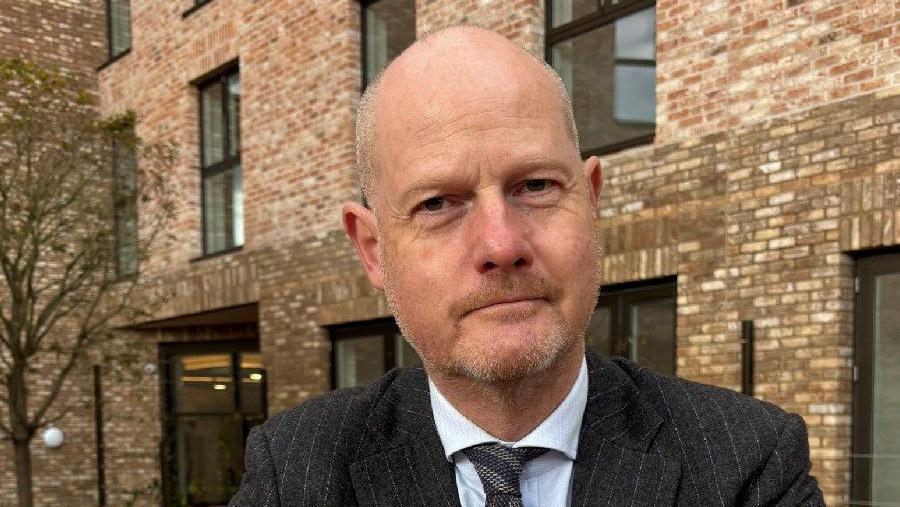
James Stevens is from the Home Builders Federation
Ms Hall said she would get rid of targets because no mayor has yet met them.
Liberal Democrat Rob Blackie said he would review the affordability rate after reforming the London Plan to focus on overall numbers.
The Greens' Zoe Garbett said she would buy up more family-sized private homes for councils.
According to Zoopla, the average rent in London is now more than £2,000 a month, with falling demand for primary school places in inner London one indicator of the financial pressures many have been facing, particularly working in the public sector.
Chiara Daughtry is a teacher paying rent of £1,500 a month for the one-bedroom flat she lives in with her four-year-old daughter in Walthamstow.
She describes London’s rental market as “highly impersonal”, where letting agents commonly do block viewings to drive up competition, let to the highest bidder after blind bids and then demand six months rent in advance.
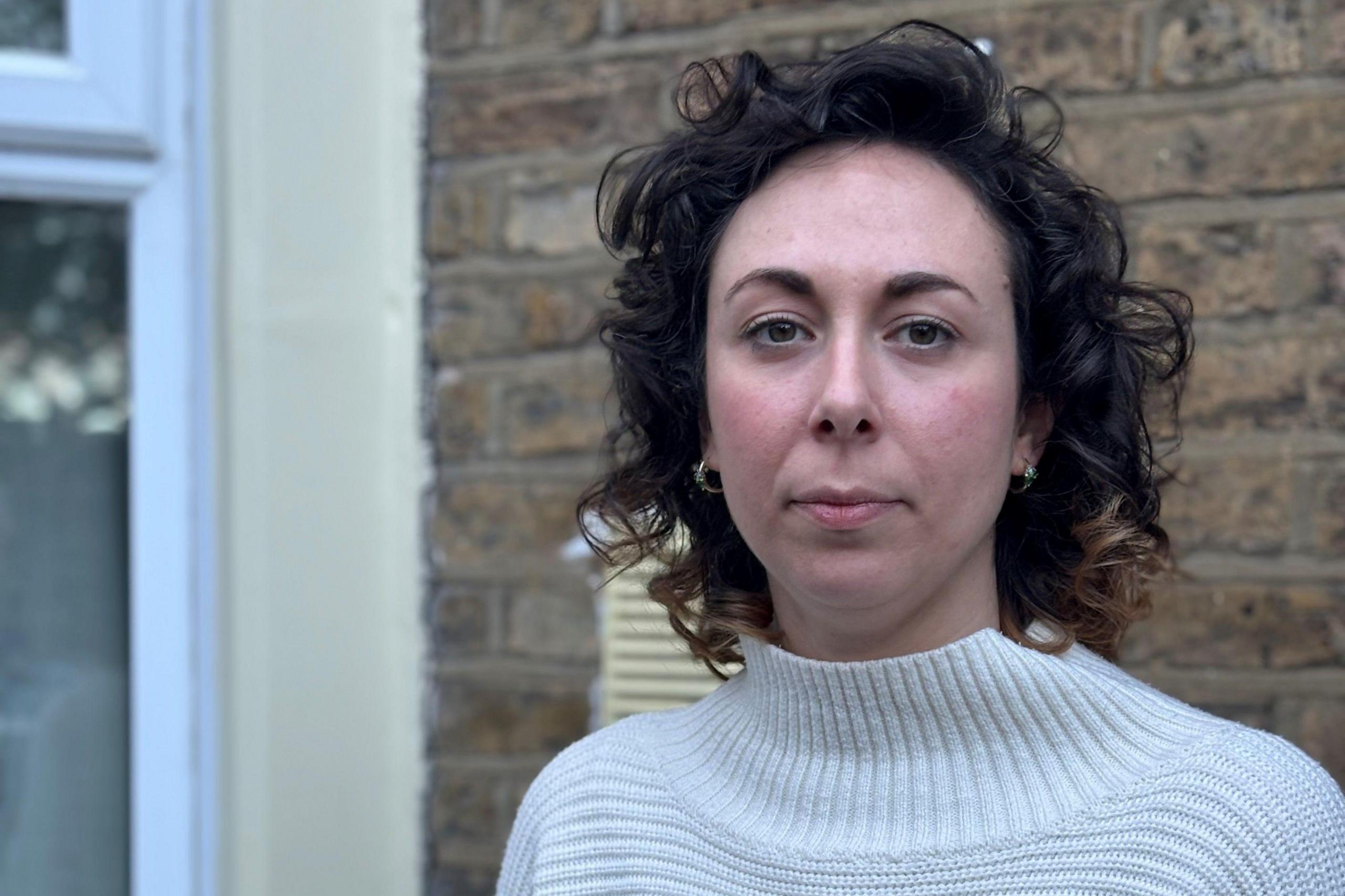
Chiara Daughtry is living in a one-bed flat in Walthamstow with her four-year-old daughter
Even when someone is successful in finding somewhere to live, she says there’s then the annual anxiety over how much the landlord will put the rent up.
“We have short rental contracts, you just hope the price will stay the same and you are just waiting every year to see if it will go up or if you can stay. It can be really difficult not knowing year on year as to what will happen," she says
“There are more tenants than there is housing so if you have issues and you kind of press hard or you're not able to pay an increased rent they just know they can replace you tomorrow."
During his mayoralty Sadiq Khan has shifted the emphasis towards funding more council and social rented homes than his predecessor Boris Johnson, but they cost more to build and absorb more public funds because developers require more public subsidy.
Since 2018, the number of new council homes has been increasing steadily, with nearly 3,500 completed last year - which Mr Khan says is the highest since the 1970s.
However, the number of completed homes categorised as for social rent - broadly the same as council homes - is lagging behind the previous mayoralty.
Boris Johnson inherited a major increase in investment from the Labour government while Sadiq Khan inherited a small "pipeline" reduced by austerity.
40,000 council homes
With the Labour leader Sir Keir Starmer by his side, Mr Khan launched his mayoral campaign with a promise to complete 40,000 council homes by the end of the decade, two years beyond the next mayoral term.
His opponents pointed out that a large proportion of these homes will be simply finishing those he has already started. They could also include the re-purchasing of ex-council homes.
Asked whether a Labour government would guarantee him the money to build more homes, he told the BBC that shadow housing secretary Angela Rayner was "hardly going to give London less than the Tories".
Given the current climate, the prospects are not encouraging with work started on only around 800 affordable homes in the past year, external.
Starts on some 27,000 new affordable homes have been agreed between government and City Hall by 2026, with Mr Khan pledging that 16,000 of these will be "low cost rent."
Listen to the best of BBC Radio London on Sounds and follow BBC London on Facebook, external, X, external and Instagram, external. Send your story ideas to hello.bbclondon@bbc.co.uk, external
- Published14 March 2024
- Published29 March 2024
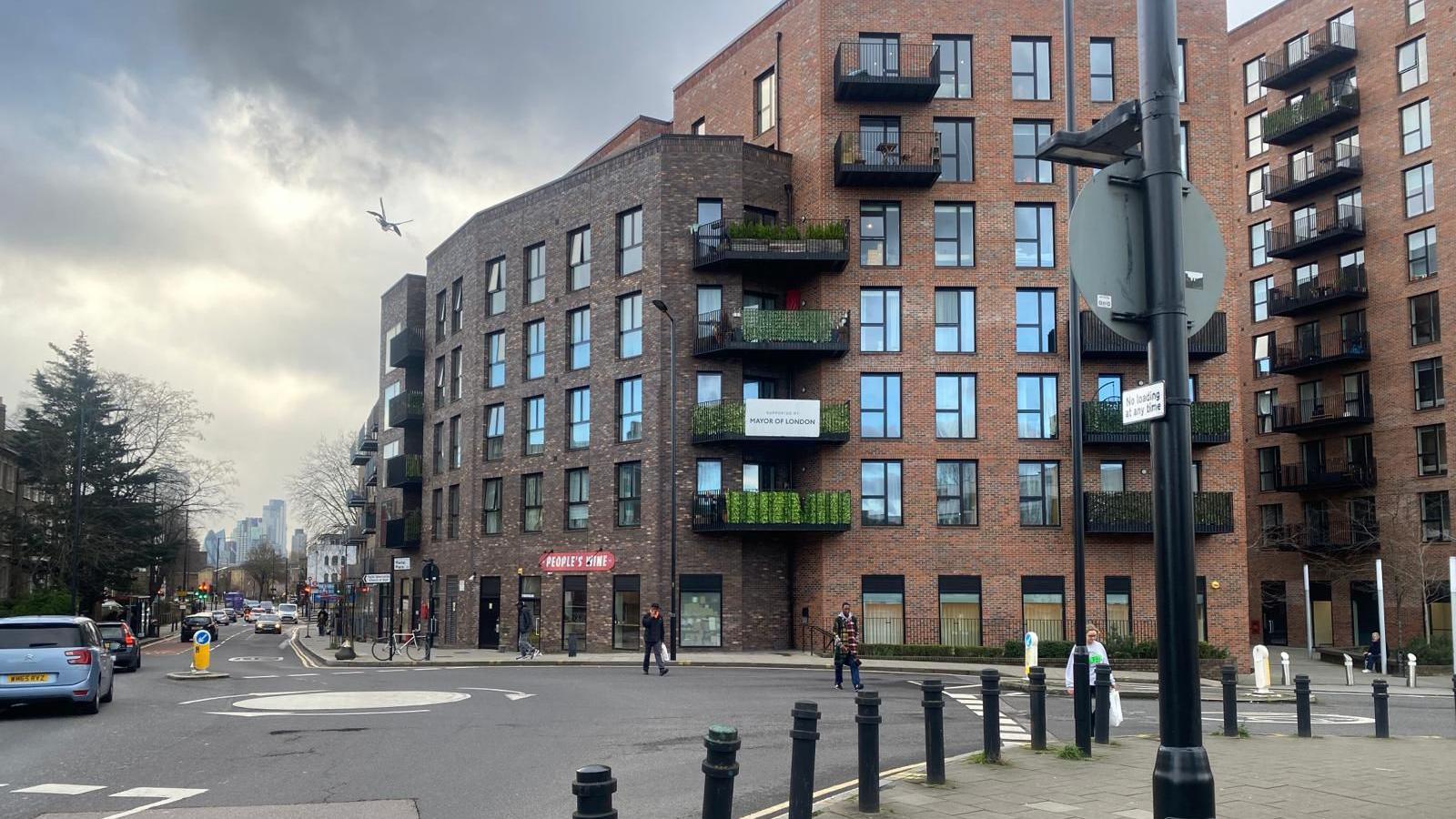
- Published19 October 2023
